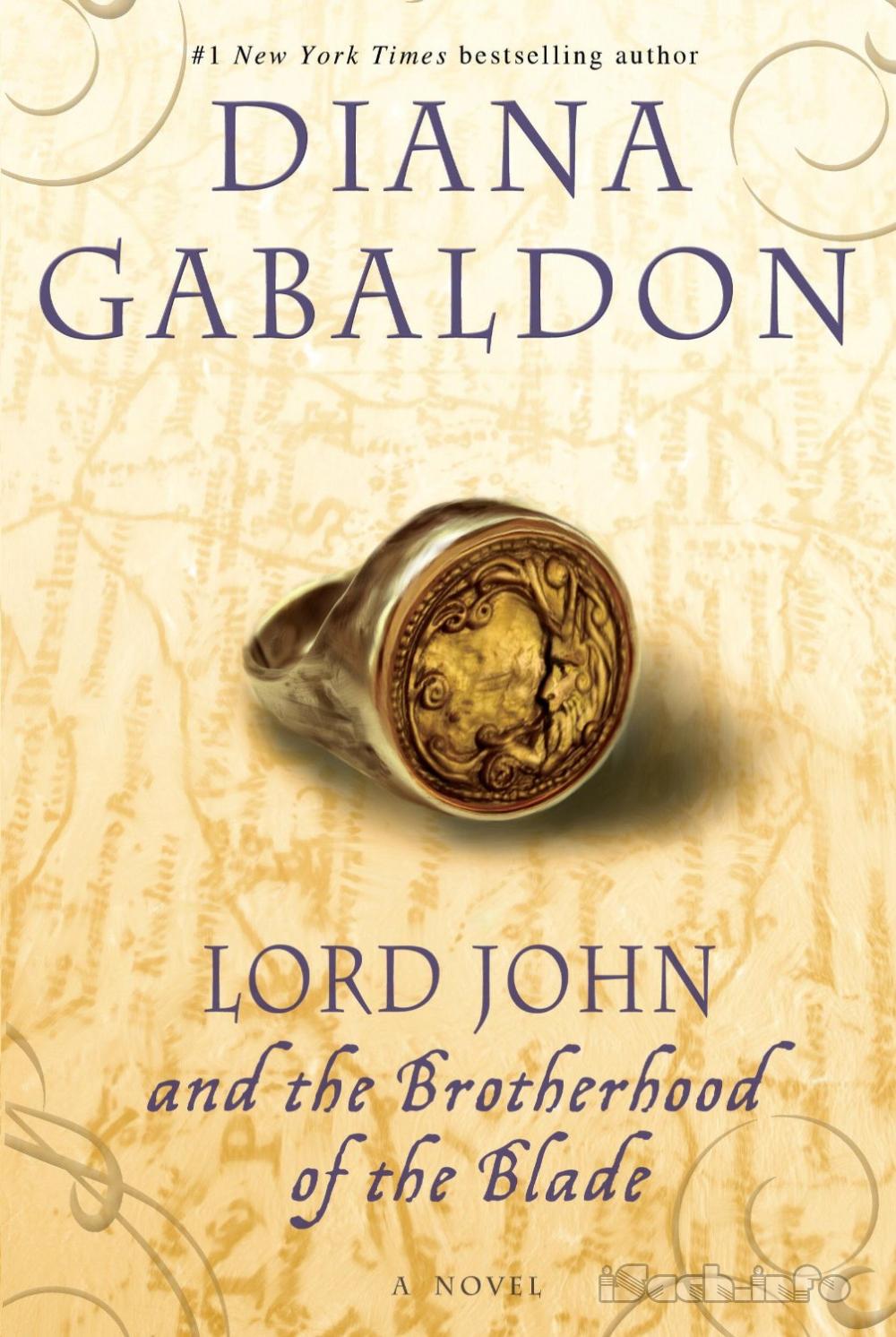Section IV: The Regiment Rises - Chapter 20: Ye Jacobites By Name
H
elwaterThe Lake District
He spent as little time as politeness required with the Dunsanys, before discovering that he had left something he required in his saddlebag.
“No, no—I’ll fetch it. Won’t take a moment.” He stopped Lady Dunsany, her hand on the bell rope, and was out of the library before she could protest.
His heart beat faster as he approached the stable, but for once, it had little to do with the physical presence of Jamie Fraser.
Dinner had been served; the stable was filled with the peaceful sounds of chewing and the smell of fresh-broken hay. One or two of the horses lifted a head to look at him, wisps of hay straggling from the champing jaws, but for the most part, they ignored him, noses firmly planted in the mangers.
Fraser was at the far end of the stable, mucking out. The huge door there had been slid aside, and he was silhouetted against the pale light of the fading spring sky. He must have heard Grey’s footsteps on the brick floor, but didn’t break the rhythm of his work.
He stopped, though, and straightened when Grey came up to him. It was cold in the stable, but there was a sheen of moisture across his jaw, and the linen shirt clung to his shoulders. He smelled of clean sweat.
“Leaks,” Grey said abruptly. “You said ‘leaks.’”
Fraser rested the manure fork on its tines, wiped his face with a sleeve, and regarded him quizzically.
“I dinna recall having done so, Major, but I suppose it’s possible—I do ken the word.”
“When you spoke of the Stuart court at our last meeting,” Grey amplified. “You said, and I quote, ‘The Stuart court leaks like a sieve.’ I am convinced that you understand the niceties of English grammar sufficiently as to use the present tense correctly, Mr. Fraser.”
Fraser raised one thick red brow, though no expression of concern showed on his face. Grey sighed.
“It leaks like a sieve,” he repeated. “How do you know that it does, unless you are presently in contact with someone there?”
Fraser rubbed a finger under his nose, regarding him, then turned back to his work, shaking his head.
“Your brain’s like to burst, Major, and ye dinna give over thinking so much,” he said, not unkindly. He shoved the pitchfork under a mound of manure-matted straw and heaved the muck out through the open door. “Ye ken well enough that the terms of my parole dinna permit any such thing.”
That was quite true; Grey had written those terms, and Fraser had signed them. He recalled the occasion vividly; it was the first—but not the last—occasion on which he had been sure that only the presence of armed guards kept Fraser from breaking his neck.
It was apparent from the Scot’s ironic expression that he recalled the occasion, too.
“And if I wasna sufficiently honorable as to abide by those terms, Major,” he added evenly, “I should have been in France a week after setting foot in this place.”
Grey forbore to take issue with the notion of someone of Fraser’s striking appearance being able to travel the roads without being noticed, or to cross fifty miles of open fell on foot, without cloak, food, or shelter—not least because he was convinced that the man quite possibly could have done so.
“I would never suggest a breach of honor on your part, Mr. Fraser,” Grey said, and was mildly surprised to find that true. “I apologize if my question might have implied any such suggestion.”
Fraser blinked.
“Accepted, Major,” he said, a little gruffly. He paused, gripping the fork as though about to return to his work, but then the muscles of his shoulders relaxed.
“I said that the Stuart court leaks like a sieve, Major, because both King James and his son are still alive, and the same men still surround them. So far as I am in a position to know,” he added, with a glint of dry humor.
“You don’t think they’ve given up?” Grey asked curiously, choosing not to notice that “King James.” “Surely they have no hope—”
“No, they have nay hope, and no, they’ve not given up,” Fraser interrupted him, the dry note more pronounced. “They’re Scots, for all they live their lives in the shadow of St. Peter’s. They’ll cease plotting when they’re dead.”
“I see.” He did. Eighteen months as governor of Ardsmuir was enough to have given him a useful estimation of the Scottish character. The Emperor Hadrian had known what he was about, he thought; pity later rulers of England had been less prudent.
With that thought in mind, he chose his words carefully.
“May I ask you a question, Mr. Fraser?”
“I see no way to stop ye, Major.” But there was no rancor in Fraser’s voice, and the light in his eye was the same that appeared when they played chess. Wariness, interest—and readiness.
“If I were to release you explicitly from that provision of your parole—and were to forward any letter you cared to send, wherever you chose to send it, without question—would you be able to contact someone who would know the names of prominent Jacobites in England? It would have been someone active in 1741.”
He’d never seen Fraser drop-jawed, and didn’t now, but the Scot plainly couldn’t have been more taken aback had Grey suddenly kissed him on the mouth.
“That—” he began, then broke off and shook his head. “Do you—” He paused again, so patently appalled at the suggestion that words failed him.
“Do I know what I ask? Yes, I do, and I am sorry for it.” Silence hung between them for a moment, broken by the champing of horses and the call of an early lark in the meadow beyond the stable.
“Please believe that I would not seek to make use of you in this fashion, were there any other choice,” Grey said quietly.
Fraser stared at him for a moment, then pushed the fork into the heap of soggy straw, turned, and went out. He walked off into the growing dusk, to the paddock, and there stood, his back turned to Grey, gripping the upper rail of the fence as though trying to reestablish his grip on reality.
Grey didn’t blame him. He felt completely unreal himself.
“Why?” Fraser asked bluntly, turning round at last.
“For my father’s honor.”
Fraser was silent for a moment.
“Do ye describe my own present situation as honorable, sir?”
“What?”
Fraser cast him an angry glance.
“Defeat—aye, that’s honorable enough, if nothing to be sought. But I am not merely defeated, not only imprisoned by right of conquest. I am exiled, and made slave to an English lord, forced to do the will of my captors.
“And each day, I rise with the thought of my perished brothers, my men taken from my care and thrown to the mercies of sea and savages—and I lay myself down at night knowing that I am preserved from death only by the accident that my body rouses your unholy lust.”
Grey’s face was numb; he could not feel his lips move, and was surprised to hear the words come clearly nonetheless.
“It was never my intent to bring you dishonor.”
He could see the Scot check his rising anger, with an effort of will.
“No, I dinna suppose that it was,” he replied evenly.
“I don’t suppose you wish to kill me?” Grey asked, as lightly as possible. “That would solve my immediate dilemma—and if you dislike your life as much as you appear to, the process would relieve you of that burden, as well. Two birds with one stone.”
With startling swiftness, Fraser plucked a stone from the ground, and in the same motion, hurled it. There was a sickening thump, and jerking round, Grey saw a fallen rabbit, legs kicking in frantic spasm beneath a bush.
Without haste, Fraser walked over, picked it up, and broke its neck with a neat snap. Returning, he dropped the limp body at Grey’s feet.
“Dead is dead, Major,” he said quietly. “It is not a romantic notion. And whatever my own feelings in the matter, my family would not prefer my death to my dishonor. While there is anyone alive with a claim upon my protection, my life is not my own.”
He walked off then, into the chilly twilight, and did not look back.
Grey left Helwater the next day. He did not see Fraser again—did not plan to—but carried a note to the stable at mid-morning. It was deserted, most of the horses gone, and the three grooms with them, as he’d expected.
He had taken some pains with the composition of the note, keeping it as formal and dispassionate as possible. He had, he wrote, informed Lord Dunsany that if Fraser chose to write any letters, to anyone whomsoever (that phrase underlined; he knew that Fraser wrote secretly to his family in the Highlands when he could), he was to be provided with paper and ink, and the letters dispatched under Dunsany’s seal, without question. The letters would not, he added delicately, be read by any save their intended recipients.
He had thought to leave the note, addressed to Fraser, pinned to a railing or stall where it would be easily found. But now he reconsidered; he didn’t know whether the other grooms could read, nor whether their respect for Fraser might restrain their curiosity—but neither he nor Fraser would want the matter to be generally known and talked about.
Ought he to leave the note with Dunsany, to be delivered personally? He felt some delicacy about that; he did not wish Fraser to feel any pressure of Dunsany’s expectations—only yours, he thought grimly. He hesitated for an instant, but then climbed the ladder to the loft where he knew Fraser slept, heart beating like a drum.
The loft was dim, but even in the poor light, it was apparent at once which spot was Fraser’s. There were three striped mattress tickings on the floor, each with a lidded wooden crate beside it for clothes and personal belongings. Two of these were scattered with pipes, tobacco pouches, stray buttons, dirty handkerchiefs, empty beer jugs, and the like. The one on the left, a little distance from the others, was starkly bare, save for a tiny wooden statue of the Virgin and a rush dip, presently extinguished.
He found himself holding his breath, and forced himself to walk normally, footsteps echoing on the boards.
There was a single blanket on the ticking, neatly spread, but speckled with straw. Heaps of matted straw lay around each mattress like a nest; the grooms must pull hay over themselves for extra warmth. No wonder; his breath was white, and the chill of the place numbed his fingers.
The impulse to lift the lid of the box and see what lay within was nearly irresistible. But he had done enough to Jamie Fraser; to intrude into this last small bastion of his privacy would be unforgivable.
With this realization came another; it wouldn’t do. Even to leave the note atop the crate, or discreetly placed beneath the blanket, which had been his first thought, would let Fraser know that Grey had been here—an intimacy in itself that the man would find an unwelcome violation.
“Well, damn it all anyway,” he muttered to himself, and going down the ladder, found a bucket to stand on and pinned the note above the lintel of the tack room, in plain sight, but high enough that only Fraser would be able to reach it easily.
He looked up toward the fells as he left the stable, searching for horsemen, but nothing showed save rags of drifting fog.



 ePub
ePub A4
A4